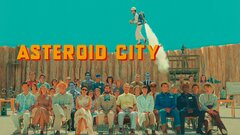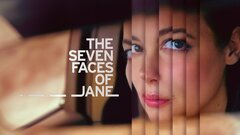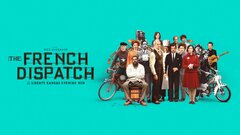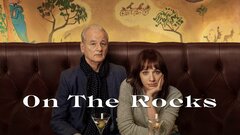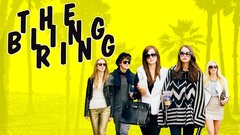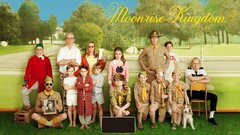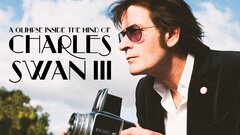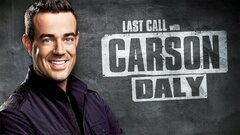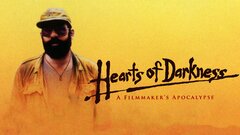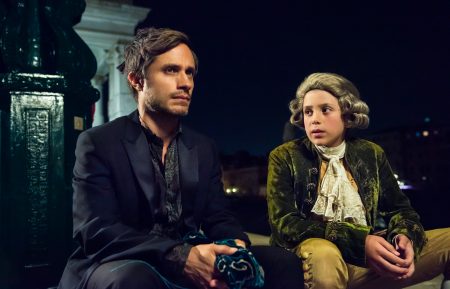Hailing from one of the most prominent movie-making families in Hollywood, Roman Coppola - second son of Oscar-winning director Francis Ford Coppola - naturally entered the family business, but managed to carve his own path despite keeping his historic name.
After growing up on the film sets of "The Godfather" (1972), "The Godfather Part II" (1974) and "Apocalypse Now" (1979), Coppola worked on the crews for his father's films "The Outsiders" (1983) and "Rumble Fish" (1983), before striking out on his own as a producer and music video director. While he earned a solid reputation for his experimental music video style, particularly on Fatboy Slim's "Praise You" (1999), he often worked behind the scenes as a second unit director for his father, sister Sofia Coppola, and friend Wes Anderson.
Coppola performed second unit directing duties on "Bram Stoker's Dracula" (1992), "John Grisham's The Rainmaker" (1997), and Sofia's film debut "The Virgin Suicides" (1999), before making his own directing bow with the hip sci-fi feature "CQ" (2001). But Coppola stepped back from directing his own films to continue working for family on "Lost in Translation" (2003) and "Youth Without Youth" (2007), while creatively collaborating with Wes Anderson on "The Life Aquatic with Steve Zissou" (2004), "The Darjeeling Limited" (2007) and "Moonrise Kingdom" (2012).
While another directing effort was certainly always on the horizon, Coppola remained satisfied contributing on second unit as well as producing and co-writing widely acclaimed films with family and friends.
Coppola was born on April 22, 1965 in Neuilly-sur-Seine, France, a suburb of Paris, where his father, Oscar-winning writer-director Francis Ford Coppola, was writing the script for René Clément's political-themed "Is Paris Burning?" (1966). He of course grew up surrounded by filmmaking, with even his mother, Eleanor, routinely making behind-the-scenes documentaries of the family's personal and financial struggles during many of Francis' films.
Meanwhile, Coppola made his acting debut alongside older brother Gian-Carlo as one of Robert Duvall's two sons in "The Godfather" (1972). Two years later, the eight-year-old appeared as the curly-haired Sonny Corleone (James Caan) in the flashback sequences of "The Godfather Part II" (1974). Deciding right off the bat that acting was not for him, Coppola instead set out to learn directing and began working on his father's productions when he was a teenager, usually performing menial crew tasks on movies like "The Outsiders" (1983) and "Rumble Fish" (1983).
The happiness of his tightknit family was shattered in 1986 when his Gian-Carlo was killed in a boating accident in Maryland, after Ryan O'Neal's son, Griffin, recklessly drove between two parked boats without noticing the towline between them. Dunne ducked but Gian-Carlo was struck and killed instantly. When he was 18, Coppola set off for film school at New York University, graduating in 1987, and moved on to earn his first credits outside his father's movies, serving as a producer of the horror thriller "Clownhouse" (1988) and the satirical comedy "The Spirit of '76" (1990).
Coppola periodically returned to his father's side, and next served as the second unit director and in-camera visual effects supervisor on "Bram Stoker's Dracula" (1992), for which his team received a BAFTA Award nomination for Best Special Effects. From there, he segued into directing music videos for artists like Moby, Daft Punk and Green Day, and later formed the music video and commercial production company, The Director's Bureau, with fellow director Mike Mills in 1996.
Coppola took an experimental approach to his videos by using cutting edge technology and progressive narratives that used abstract and often bizarre imagery, making him one of the more sought-after music video directors around. Meanwhile, he branched out into commercials for such big name clients as Adidas, Coca-Cola and Levis, while serving as a second unit director on a pair of his father's films, "Jack" (1996) and "John Grisham's The Rainmaker" (1997). He later helped out younger sister Sofia in the same capacity on her well-received directorial debut, "The Virgin Suicides" (1999).
Back on the music video front, Coppola won three MTV Music Video Awards that same year for his collaboration with choreographer Richard Koufey on Fatboy Slim's hit single, "Praise You" (1999). After almost 20 years of formal and informal education, Coppola felt ready to take the plunge and direct his own feature, resulting in the experimental sci-fi feature "CQ" (2001), which he described as a hip, engaging take on "Barbarella" set in 1969 Paris.
Inserting a nod to his own creative dilemma, the story centered around Paul (Jeremy Davies), a struggling American filmmaker trying to make a personal and important film who is sidetracked by his assignment to direct a bumbling sci-fi movie about a sexy secret agent (Angela Lindvall). "CQ" garnered him a reputation as a promising directing talent, but instead of looking for his next film, Coppola directed second unit for Sofia on her Oscar-nominated dramedy "Lost in Translation" (2003) and teamed up with quirky director Wes Anderson on the second unit of "The Life Aquatic with Steve Zissou" (2004).
Teaming up with Anderson once again, Coppola co-wrote, produced and served as the second unit director on "The Darjeeling Limited" (2007), a rather underwhelming dramedy about three estranged brothers who take a spiritual trek through India following the death of their father. The film starred Anderson alum Owen Wilson, Oscar winner Adrien Brody and Coppola cousin, Jason Schwartzman, son of Francis' sister, Talia Shire.
After directing second unit for his father's little-seen romantic thriller "Youth without Youth" (2007), Coppola was the voice of Squirrel Contractor in Anderson's animated "The Fantastic Mr. Fox" (2009), before producing Sofia's well-received drama "Somewhere" (2010), which focused on a debauched film star (Stephen Dorff) reconnecting with his 11-year-old daughter (Elle Fanning). He went on to serve as a producer on the long-awaited adaptation of Jack Kerouac's "On the Road" (2012), which Francis first started to develop as far back as 1979.
Meanwhile, he reteamed with Wes Anderson to co-write and produce the winning childhood drama, "Moonrise Kingdom" (2012), which earned them both an Academy Award nomination for Best Original Screenplay.
By Shawn Dwyer

